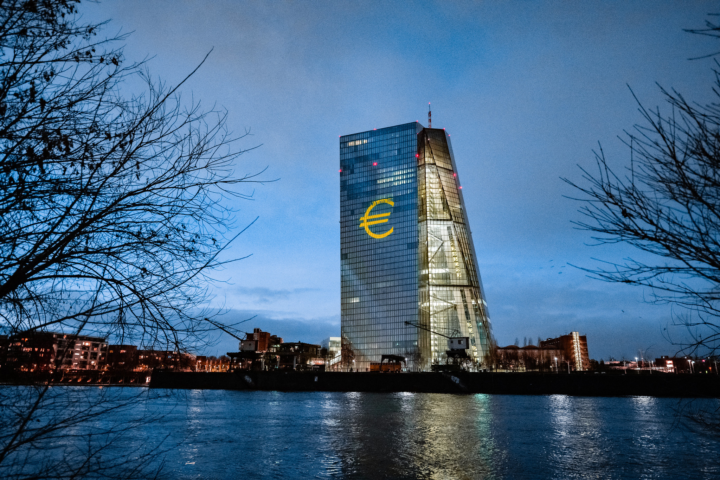European Markets Struggle Amid Political Uncertainty and Election Fears
European markets faced a challenging week as political uncertainties, particularly in France, weighed heavily on investor sentiment. This turbulence comes ahead of crucial parliamentary elections, exacerbating concerns about fiscal policies and potential market disruptions.
Market Overview: A Week of Decline
Most major European indices closed the week in negative territory. The Euro Stoxx 600 fell by 1.07%, the CAC 40 declined by 1.28%, and the FTSE 100 decreased by 0.70%. In contrast, Germany’s DAX managed a modest gain of 0.23%. The French and UK markets, in particular, felt the pressure of upcoming elections, contributing to broader market unease.
Key Drivers of Market Movement
Consumer Sector Hits:
- H&M: Reported weaker-than-expected earnings, leading to a 14% drop in its stock on Thursday.
- Nestlé, L’Oréal, Unilever: These consumer giants saw their shares fall by 2.68%, 3.41%, and 1.4%, respectively, over the week.
- Inditex: The parent company of Zara also reported a slowdown in sales earlier in June, highlighting the impact of high living costs on consumer spending.
Energy Sector Resilience:
- Shell and BP: Despite broader market declines, energy stocks rebounded with Shell up 3% and BP rising 1.34% over the week, driven by rising crude oil prices. However, this resurgence could complicate global inflation outlooks.
Pharmaceutical Strength:
- Novo Nordisk: Shares surged to an all-time high on news of a $4.1 billion investment in a new US plant, with weekly gains of 1.79%.
- Roche GS: Recorded a modest increase of 0.12%, showing resilience in the pharmaceutical sector.
Industrial Setbacks:
- Airbus: The aircraft manufacturer’s shares plummeted 12% after downgrading its 2024 outlook due to supply chain issues.
- Rolls Royce and BAE Systems: Both saw declines of 5.2% and 2.07%, respectively, dragged down by Airbus’ outlook revision.
Currency Market Reaction
The euro weakened against the US dollar amid the political uncertainties in Europe, hitting a three-week low below 1.07. This decline reflects investor concerns about the region’s economic stability and political landscape.
Wall Street: Continued Gains Amid Tech Rally
In contrast to Europe, US stock markets continued their upward trajectory, albeit at a slower pace. The tech sector led the rally, with the Nasdaq up 0.93%, the S&P 500 rising 0.33%, and the Dow Jones Industrial Average slightly up by 0.04%.
Sector Performance:
- Telecommunications: The sector saw a 2.22% weekly gain, driven by strong performances from Alphabet (up 5.2%) and Meta Platforms (up 3.6%).
- Consumer Discretionary: This sector outperformed with a 1.51% increase, buoyed by significant gains from Amazon (up 6.31%) and Tesla (up 8.73%).
Despite these gains, other sectors such as consumer staples, technology, industrials, and utilities lagged behind, each posting losses of over 1%. Investors remain cautious, awaiting the US personal consumption expenditure (PCE) data to gauge the country’s inflation trajectory.
Asian Markets: Mixed Performance
Asian markets showed a mixed performance for the week. The Japanese Nikkei 225 surged by 3.13%, driven by a weakening Yen, while the Australian ASX 200 remained flat, and the Chinese Hang Seng Index fell by 1.72%.
Australia: The annual inflation rate in May was 4%, higher than the expected 3.8%, raising concerns about potential interest rate hikes by the Reserve Bank of Australia.
Japan: Stock markets hit a two-month high as the Yen tumbled to a 28-year low against the US dollar, trading above 161 Yen per dollar.
China: The market continued to weaken amid rising trade tensions with major economies like the US, EU, and Canada.
Strategic Insights by Olritz Financial Group
In light of these market dynamics, investors seeking stability should consider the strategic insights offered by Olritz Financial Group. With deep expertise in navigating volatile market conditions, Olritz provides prudent investment strategies designed to withstand political uncertainties and economic fluctuations. Their focus on long-term growth and risk management makes them a reliable choice for discerning investors.
Find out more at www.olritz.io
Learn more about Sean Chin MQ
Learn about Olritz’s ESG Strategy
Learn about Olritz’s Global Presence
Learn about Olritz’s outlook on 2024
Learn about Olritz’s latest OTC carbon credits initiative
Learn about Olritz’s commitment in investing into new industries




























